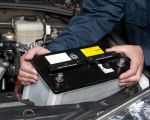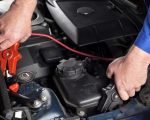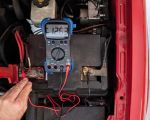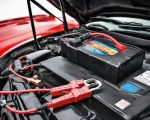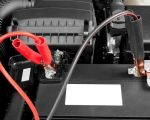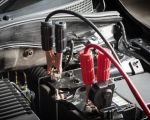Understanding the Right Battery for Your Car
As a car owner, one of the most common yet crucial decisions you'll face is selecting the right battery for your vehicle. Whether your current car battery is dead or you're preparing for a future replacement, understanding what type of battery you need is essential. Choosing the wrong one can leave you stranded or even damage your car’s electrical system. This article will guide you through the process, providing you with practical tips, real-life cases, and expert advice to make the right choice.1. What Type of Battery Do I Need for My Car?
When asking "What type of battery do I need for my car?" the answer largely depends on several factors including your car's make and model, your driving conditions, and your personal preferences. Car batteries come in various types, each with distinct features:- Lead-Acid Batteries: These are the most common type and are often used in traditional gasoline-powered vehicles. They're reliable and cost-effective.
- AGM (Absorbent Glass Mat) Batteries: Known for their high performance and durability, AGM batteries are ideal for modern vehicles with advanced electrical systems.
- Gel Batteries: Offering excellent deep cycle capabilities, gel batteries are commonly used in vehicles that need frequent and sustained use of electrical power.
- Li-ion (Lithium-Ion) Batteries: These are high-tech, lighter, and offer longer life, but are often found in electric vehicles (EVs).
2. Why Battery Type Matters for Your Car?
Each car battery type comes with its advantages and specific use cases. The performance and lifespan of your car battery depend on its compatibility with your car’s needs.- Battery Size: Every car has a specific battery size. Ensure you buy the right size to avoid poor fitting, which can cause electrical problems.
- Cold Cranking Amps (CCA): This measures the battery’s ability to start an engine in cold conditions. If you live in a colder climate, look for a battery with a higher CCA rating.
- Reserve Capacity (RC): RC refers to how long the battery can supply power if the alternator fails. It's crucial for vehicles with heavy electrical loads.
3. Real-Life Story: A Customer’s Emergency Car Battery Issue
One of our loyal customers, John from Michigan, had an emergency situation where his car battery died on a snowy morning, leaving him stranded. His car wouldn’t start despite the cold-cranking amps appearing to be sufficient. After calling a local roadside assistance service, the technician discovered that John’s battery was underperforming due to a mismatch with his car’s advanced electrical systems. They replaced the battery with an AGM battery, which was the recommended type for his model. John was amazed at how quickly his issue was resolved. He learned that while he thought the battery specs seemed sufficient, his car’s need for a high-performance AGM battery was crucial for reliable operation in harsh conditions.4. Choosing the Best Car Battery for Your Vehicle
To avoid the frustration of being stuck in an emergency, follow these key tips for selecting the best car battery for your vehicle:- Consult Your Vehicle’s Manual: The manual will provide you with the exact specifications your car needs, ensuring you choose a compatible battery.
- Consider Your Driving Conditions: If you frequently drive in harsh climates or have a lot of electrical accessories in your car, you might need a more advanced battery.
- Opt for a Quality Brand: Although it may be tempting to go for the cheapest option, investing in a reputable brand can save you from future hassle.
- Get Professional Assistance: If you're unsure about what type of battery you need, consult an expert to help guide your decision-making process.
5. How to Maintain Your Car Battery
Proper maintenance is key to prolonging the life of your car battery. Here are some practical tips:- Regularly Check the Battery Terminals: Clean terminals can help prevent corrosion, which could cause the battery to lose power.
- Ensure the Battery is Secure: Loose or rattling batteries can cause internal damage.
- Test Your Battery: Have your battery tested regularly to ensure it’s still working efficiently, especially before winter.
6. When to Replace Your Car Battery
Knowing when to replace your battery can save you from sudden breakdowns. Some signs that it might be time to replace your battery include:- Your car is slow to start or doesn’t start at all.
- Frequent dashboard warning lights.
- Visible signs of corrosion or damage on the battery.
- Extreme weather conditions affect performance.














